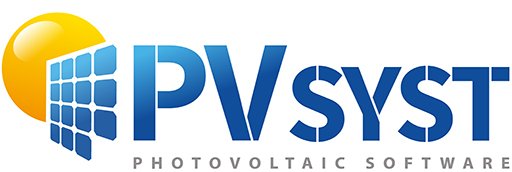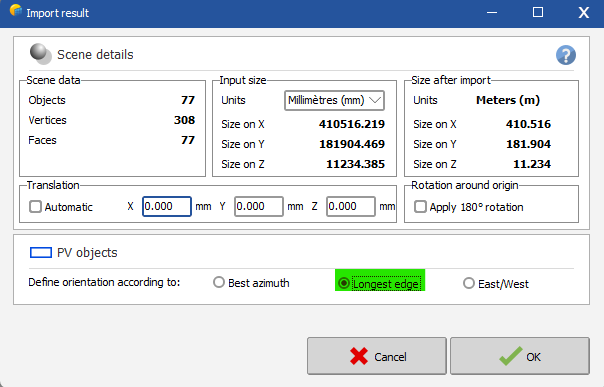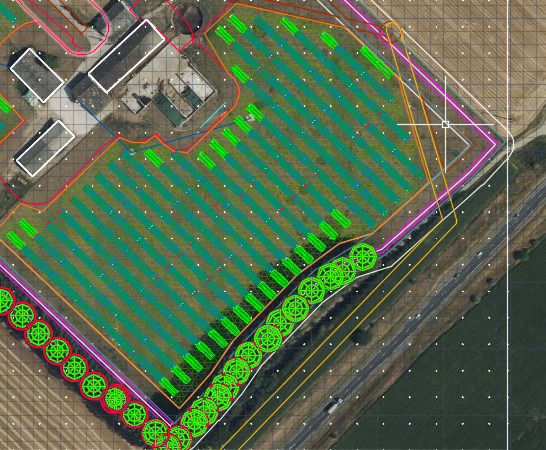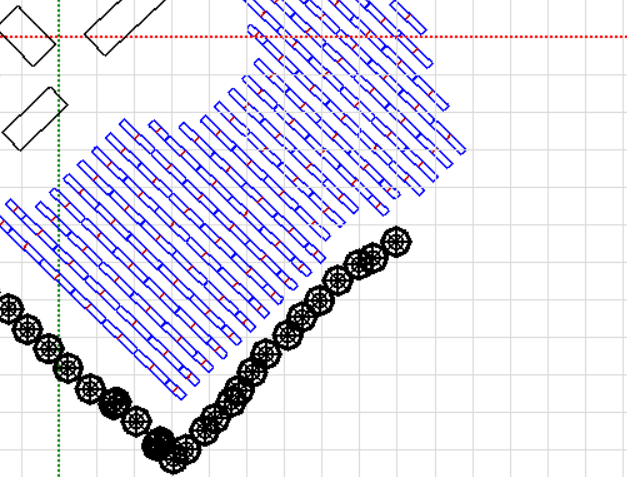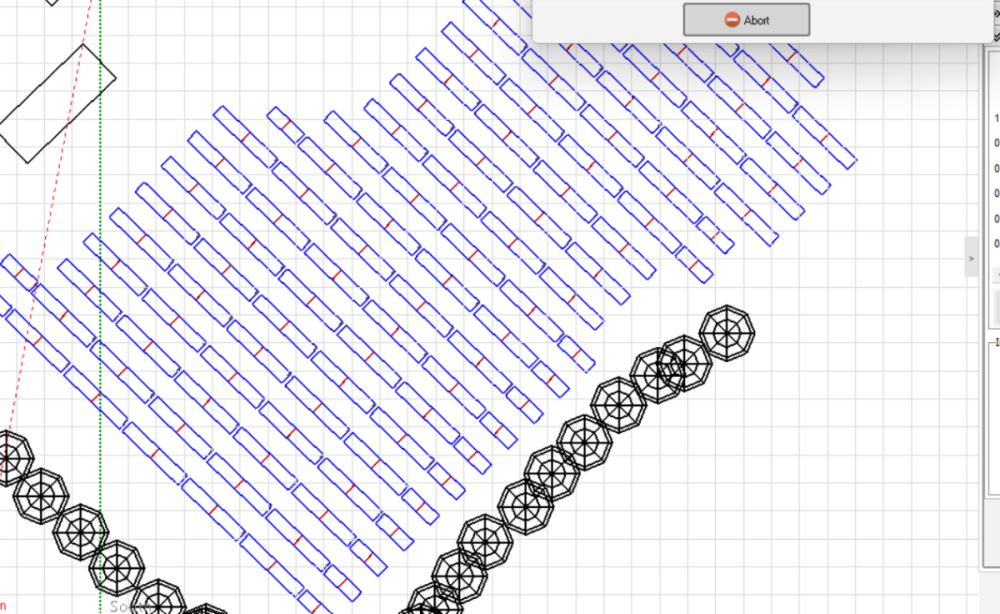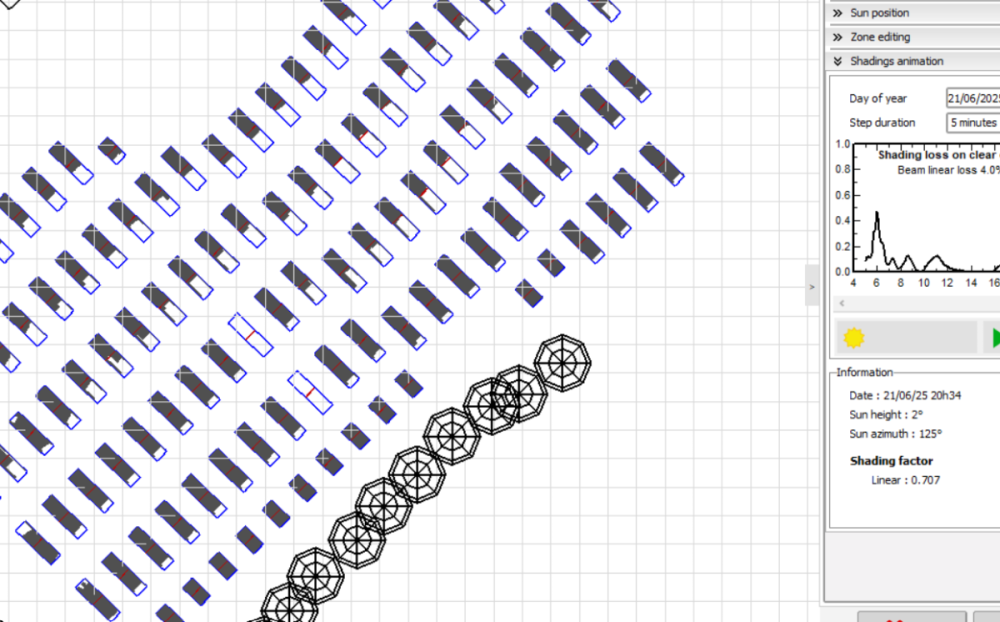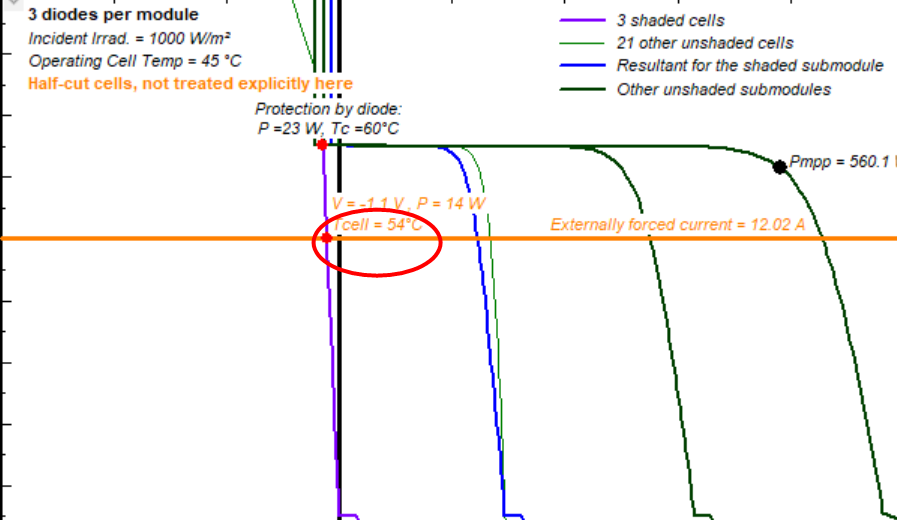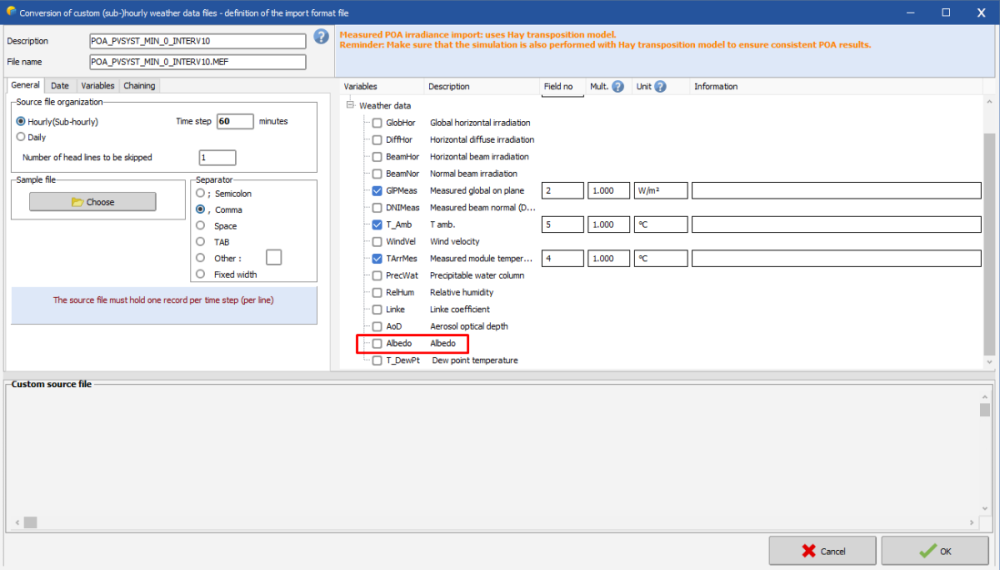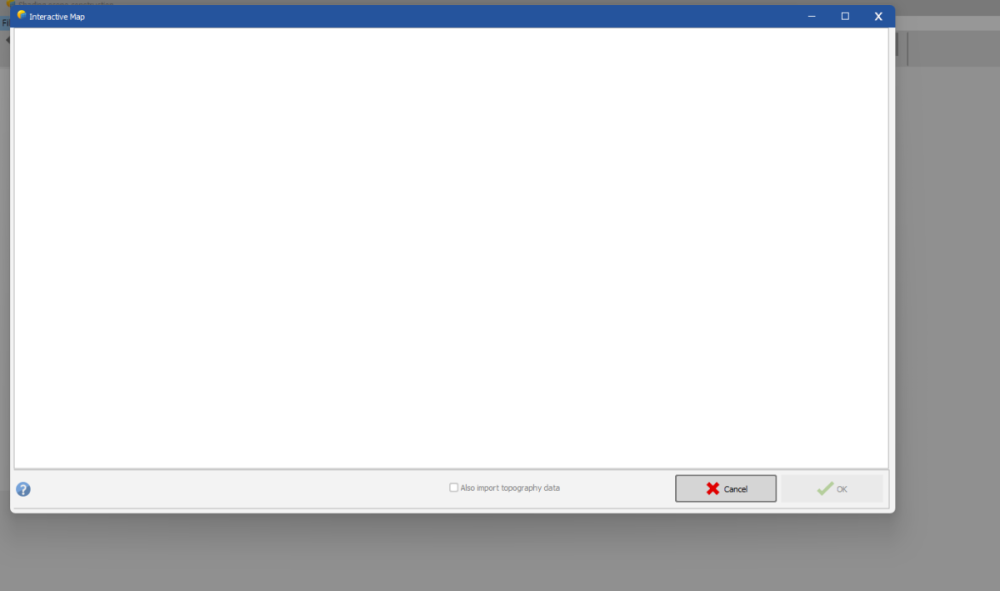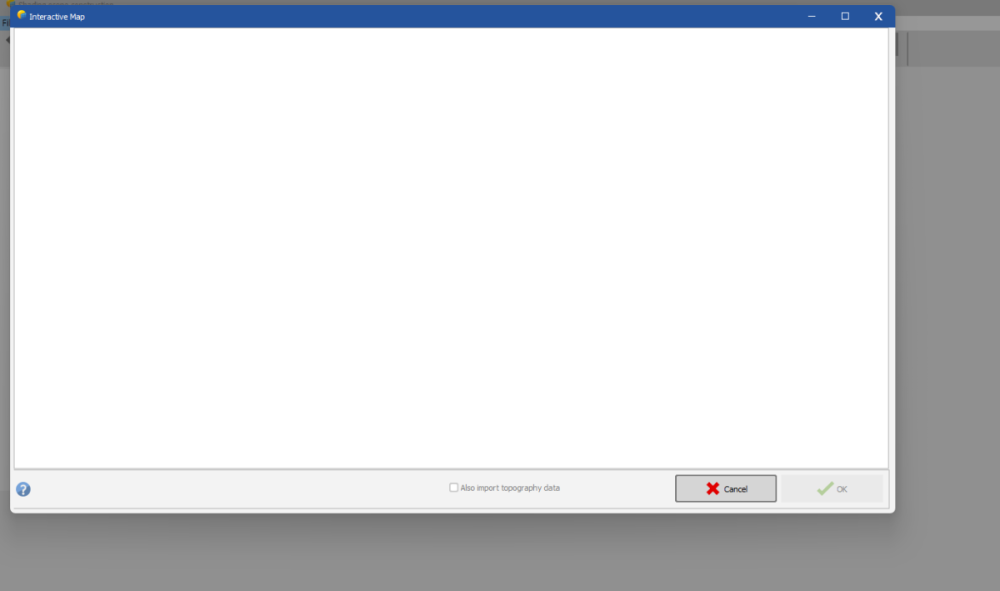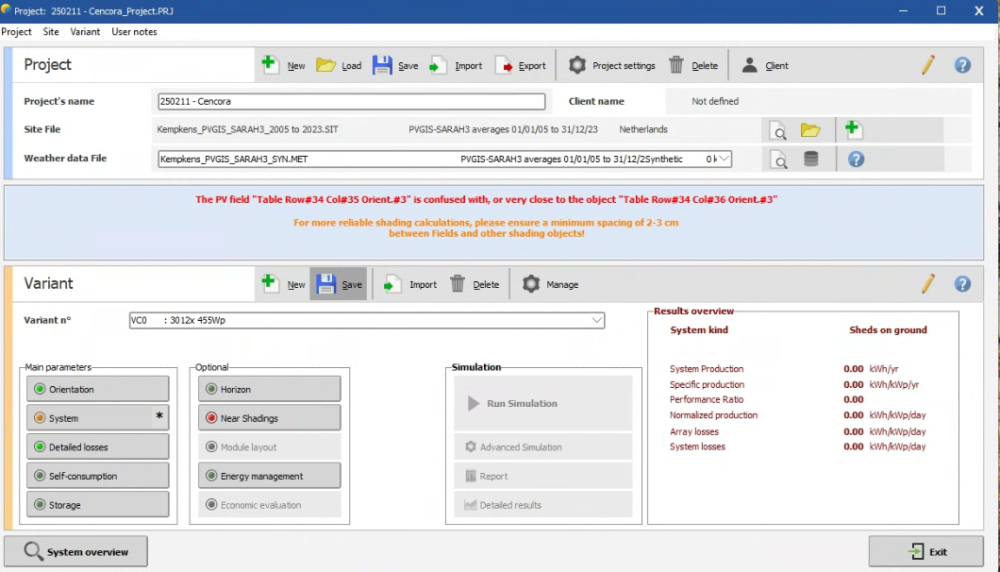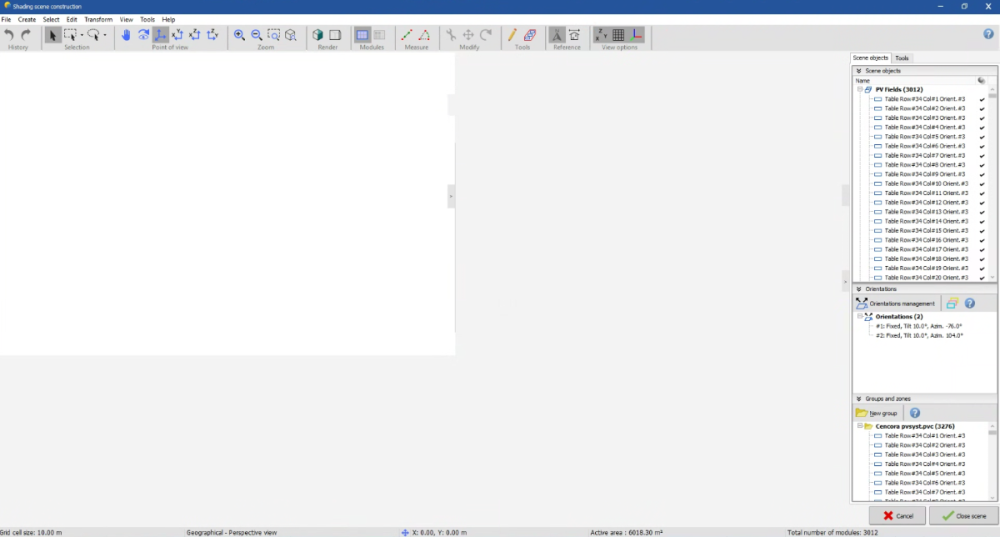All Activity
- Past hour
-
André Mermoud started following the temperature of shaded solar cell
-
In this tool, PVsyst tries to evaluate the temperature of the reverse-biased cell, as a function of the power consumed in this cell and the U-value (with resp. to 25° ambient). In this case this is not dangerous, but in usual modules the cell temperature may become very high: this is the hot spot problem.
- Today
-
Michele Oliosi started following Trackers rotation axes when Azimuth is different from 0°
-

Trackers rotation axes when Azimuth is different from 0°
Michele Oliosi replied to AdelB's topic in Shadings and tracking
When importing, you should have multiple choices to define the orientation: Can you try "longest edge" ? -
AdelB started following Trackers rotation axes when Azimuth is different from 0°
-
Hello PVsyst team, I am working on an Agri PV project where i have to respect the sense in which the crop is planted. Given that the crop is planted at -46.2°, i have to install my trackers accordingly. See picture below. The issue is that when I import the PVC scene on PVsyst and simulate the shading animation, the rotation axis used by PVsyst is N-S axis (as if the middle of the tables is the centre of of the rotation from south-east to north-west) while the intended rotation is supposed to be north-east -> south west) see picture below : (I'm putting the middel and the End of the simulation)
-
Michele Oliosi started following Albedo in .MET files and Finding out the reflection caused by the solar panels
-

Finding out the reflection caused by the solar panels
Michele Oliosi replied to Adeline's topic in Simulations
The issue of reflection is that it is not explicitly modeled by PVsyst (currently). You should therefore find an indirect way to estimate it, or, better, find another tool that is more adapted. Also you interested in the reflection as a directional quantity? (for the purposes of glare regulations, for example). Or is are you interested in the amount of light “lost” to reflection, as a way to understand the energy flows? -
@Leticia Currently, albedo is still stored in the weather file as monthly coefficients. This means that the time series will be summarized into monthly values. The hourly time series will be exploited in a later patch. These coefficients can then be used in the project settings, but it still requires going to the project settings and click on the button to copy the values from the MET file. Since these coefficients can end up in the project settings, they are currently intended to be used for the far albedo.
-
Kanagavel K started following Sang Han
-
in my opinion,the module VOC corrected by irradiance value and ambient temperature will be more reasonable for system design.
-
Dear PVsyst team: when some solar cell is partial shaded,how to calculate its temperature as shown in the following figure, thanks!
-
shkim joined the community
- Yesterday
-
Hello Team, I am using V8.0.11 and trying to model Bifacial w/ Fixed Tilt Plane, Flush to Roof mount via Polygonal Fields - this is not compatible with bifacial 2D model - is this a bug or is there some way that I could model this irregular layout with bifacial (see snip of model)? I realize this flush to roof the bifacial factor will be very small, but the client is determined to confirm modeling this bifacial gain.. Any suggestions and thoughts are greatly appreciated, much thanks in advance! ie would converting to a Rectangular PV Array and trying to line up/match this jagged flush roof layout (as much as possible) allow the bifacial 2D model - or something else be a workaround? Thanks, Mike
-
Here's one way CCC could be incorporated into PVsyst, to enable more accurate modeling with standard hourly TMY datasets:
-
CarlosSolis changed their profile photo
-
Hello PVsyst Community, I’m a solar PV designer working on utility-scale projects and looking for an efficient way to import a 3D forest model into PVsyst. The goal is to perform accurate shading and horizon analyses, as nearby vegetation significantly impacts system performance. If anyone has experience or recommendations for importing realistic 3D vegetation or forest models into PVsyst—whether through SketchUp, terrain files, or other compatible formats—I would greatly appreciate your insights. Thanks in advance for your support! Best regards, Carlos
-
CarlosSolis joined the community
-
mazenalselwi joined the community
- Last week
-
Leticia started following Albedo in .MET files
-
Hello everyone! I searched for documentation explaning better about the Albedo that is now available in version 8 to input in .MET files, but I didn't find any infformation. Can you please explain me better if the Albedo inputed in timeseries data would it be realted to albedo of the project, which is the albedo of the far terrain in front of the PV installation, or the albedo for the bifacial evaluation, that is the albedo of the ground below the installation.
-
Arjav joined the community
-
VASILIKI KANELLOPOULOLU joined the community
-
Nils Lang started following About Interactive map not working
-
Dear Swonno, In this case, you should email us a support request at support@pvsyst.com with your PVsyst LOG files (menu <File> <Export logs>) so we can analyze what happened. Best regards.
-
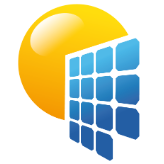
Daily generation profile Irregularities
Linda Thoren replied to JamesLenton's topic in Problems / Bugs
Indeed it seems a bit surprising that the global irradiance would be 0 for a few hours in the middle of the day, but indeed possible. Using another weather data provider, do you see similar drops in irradiance? If you import a weather file with missing data, these hours will be considered as 0 in PVsyst. -
Hello, I am currently faced with some technical difficulties while doing the simulation and would like to make an enquiry... I am trying to find the reflection data from the solar panels from the simulations, so that we are able to study how bright the reflection would be during different hours of the sun. However, from the advanced simulation, data related to reflection only comprise of ground reflection on front side and back side. Understand that PVSYST is not able to give the direct data for total amount of reflection, is there any other methods where we can do a self-calculation from the data's derived from the simulation? I tried doing some research and had the hypothesis that from the law of reflection, incident angle = reflected angle on smooth surface. So, using that as a basis, the total IAM loss could also apply to the reflected angle. Meaning the reflected angle would also have the same IAM loss however, after much digging, I found that that might not be the case.. So I am actually quite stuck and confused.. T-T My knowledge of this is really at the basic level so I could really use some help. Thank you
-
khushbujewellers joined the community
-
Adeline joined the community
-
t Hello PVSyst team, I'm trying to import topology but it seems nothing downloaded well. Just looking white for few mins. Is it still having a bug or error?
-
Mahdi joined the community
-
Hi PVsyst team: Did we do some studies about the temperature and convective heat transfer characteristics of PV module due to the different array pitch,or different array tilt angle,or fixed tilted installation horizontal axis N-S installation. such as the pitch of 1# array is 4.5m, and the pitch of 2# array is 5m, in my opinion, the Uc and Uv coefficient will be different for the two array modules. meanwhile,choosing different sopport for photovoltaic modules can also have an impact on the temperature of the modules. Will future software consider these intricate factors? thanks
-
Hi, When I do a google search on "export PVsyst shade scene to PVC," the AI response is a long message that includes a description of this process, but when I click on the links the same search returns, this process isn't included. I also don't see an appropriate option under "Files" in the shading scene window. I would love to be able save my (updated) shading scenes as PVCs, but I now suspect that this is a case of AI hallucination. Is it, in fact, possible to do this export? If not, can I suggest adding this feature? Thanks.
-
Laurdaniel joined the community
-
Shubham Chaskar joined the community
- Earlier
-
The monthly values do not tell whether PV generation and load are aligned all the time. If you don't have any storage in the system, the load may not be covered in different situations, like outside daylight hours, early in the morning or evening if the load is high, or during cloudy periods in the middle of the day. Therefore, it is quite normal, that you cannot self-consume all the monthly or yearly PV generation, even if it is less than the integrated consumption.
-
Your understanding is correct. The batch mode of PVsyst will indeed not change the number of modules, strings or inverters when you change the pitch. You need to specify those parameters explicitly for each simulation in the batch run and ensure beforehand that they are consistent. In your scenario, where you have standardized containers that will take the PV modules, it should not be too hard to calculate the number of strings that work for a given pitch, and possibly adapt the number of inverters or MPPT inputs. This will give you a limited number of scenarios, for which you then need to vary the tilt. The simplest approach for your case would be to create the batch parameter file with PVsyst, where you choose as parameters tilt, pitch, number of strings and number of inverters (or MPPT inputs). Import this file into a spreadsheet software like Excel or LibreOffice, and fill in lines for all combinations of pitch and tilt. For the number of strings use a formula that computes the number you can fit on the containers as function of the pitch. For the number of inverters use a formula based on the number of strings. If you save this again in CSV format, you can proceed to run the batch simulations. If you are unsure about what PVsyst will do exactly in a given batch simulation, you can use the option 'Calculation version for specified runs', when you first define the batch parameters. This will create an additional column in the batch parameter file, where you can fill a 'Y' for runs you would like to cross-check. These runs will then create variants in your project, that you can open and examine once the batch run is finished. To easily spot these new variants in the project, PVsyst will use the 'Comment' column to generate the titles of the variants.
-
Shading scene construction error/bug
S Groenveld replied to S Groenveld's topic in Shadings and tracking
When I put my system layout in, it is giving me this error. I checked my project and there is nothing wrong with this. Also I only have 2 orientations but PVsyst made it 3. -
Hello, When I try to import my 3d scene from VirtoCad as usual, since the new update there is a problem. When I import the scene as usual, I can't 'find' my scene, while it does see the amount of panels it gave a bug with the orientations. Before the update I could just work like this and now I can't use pvsyst. It happens with every project. Can you please help me with this? Thank you in advance.
-
Hi, For a schoolproject i am investigating different ways to integrate PV on standardized containers. Now, with a batch simulation i want to evaluate the pitch and tilt in order to find the maximum yearly energy. It's not entirely clear to me what happens to the number of modules when the pitch changes. With a fixed available area, increasing the pitch should reduce the number of modules that can fit, and therefore also decrease the total energy production. If I understand correctly, PVsyst doesn't take this into account automatically, and you have to manually calculate how many panels fit within the area for each pitch value. Do I understand this correctly? And if so, could you explain the easiest way to do this? Thanks!
-

Near Shading of Objects Bug - PVsyst 8
Eric Poirrier replied to Evan Westphal's topic in Problems / Bugs
Hi Evan, Thanks for the project file. Indeed, PVsyst has a problem with the "Shadow Casting" setting on PV fields. According to the documentation (https://www.pvsyst.com/help/project-design/shadings/partial-shadings-and-calculations.html?h=casting#shadow-casting) this setting should not prevent PV fields to receive shadows from surrounding “shadow casting” objects. I have raised a software change request to address this issue. In the meantime, please turn the shadow casting for all your PV objects ON (setting by default). Cannot really think about a scenario requiring the shadow casting of PV trackers field tuned OFF anyway. As far as I can see non-PV Objects behave as expected, they cast shadow on PV fields according to their settings. Best regards, Eric
